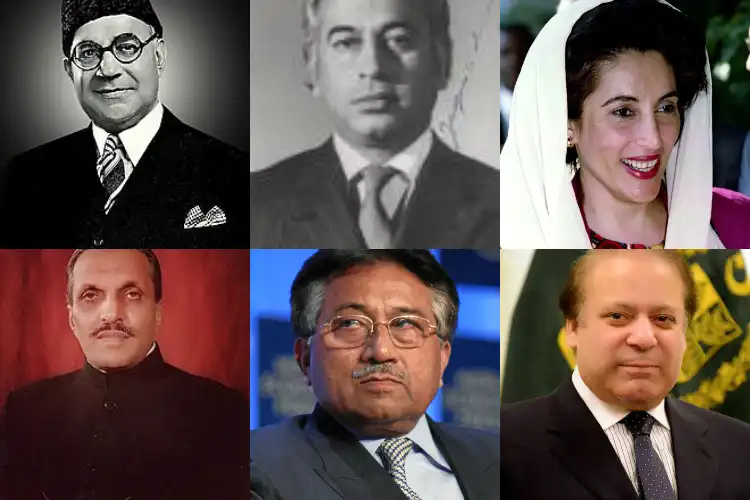
Aasha Khosa/New Delhi
Imran Khan is not the only former Prime Minister of Pakistan to face threats to his life; hounding the former rulers is the legacy of the country's political culture ever since it was born out of India, the most uninterrupted and committed democracy in the world.
Here is the story narrated by Prime Minister Benazir Bhutto in her Autobiography Daughter of the East when she thought she had established the supremacy of the political leaders over the Military in Pakistan.
Benazir was elected Prime Minister for the second time in 1988, when Pervez Musharraf, the then Director General of Military Operations (DGMO), came to her with an idea that she should immediately order the Pakistan army to march into Srinagar.
Benazir writes that she was appalled by Musharraf’s idea and grilled him. “..And then what will happen?” she asked. Musharaff persisted in his fantasy that “Kashmiris will welcome the Pakistan Army and after taking control then Pakistan will go to the United Nations to get an order for a ceasefire.”
Benazir writes she was very angry at the temerity of the General and earlier of the Army Chief who wanted her to take over Afghanistan.
She told Musharraf: “And you know what the United Nations will tell me? They will pass a resolution in the Security Council condemning us and demanding that we unilaterally withdraw from Srinagar and we will have nothing for our efforts but humiliation and isolation.”
Benazir thought she had had her way with the Generals intoxicated with the "victory of Mujahideen in Afghanistan.” Little did she know that the same Musharraf will throw her out of the country and then refuse to provide her security on her return leading to her assassination (December 2007).”
Benazir was not the first Prime Minister of Pakistan who did not lead a normal life after losing power and was assassinated in a plot that involved Pakistan’s deep state using terrorists.
Pakistan’s history began with the assassination of its first Prime Minister Liaquat Ali Khan in 1951, four years after the country was born.
Thereafter, the country lived under prolonged spells of martial law,making people quip: “Countries have armies, Pakistan’s army has a country,” and the Army emerging as Pakistan's most powerful institution.
After a long time, Pakistan had its first elected Prime Minister Zulfikar Ali Bhutto in 1971. The controversial elections finally led to the country’s vivisection - Bangladesh was carved out of Pakistan as a free country - and diminishing the Army’s reputation and taking the sheen off its omnipotence. Bhutto was jailed, tried in a court and sent to the gallows by the Martial law administrator Gen Zia ul-Haq in 1979.
The Generals too did not remain untouched by the innate culture of political revenge. Zia, one of the longest-serving Premiers of the country who injected Islamic fundamentalism into its institutions and system, also died in a mysterious plane crash suspected to be the handiwork of foreign powers in 1988.
After the Bhuttos, Nawaz Sharif was the most popular Prime Minister of Pakistan. He was elected twice. The first time, he was overthrown by General Musharraf in a coup in 1990 and sent to Saudi Arabia to live in exile.
On returning to Pakistan and winning a landslide victory, Sharif ensured his tormentor Gen Musharraf leaves Pakistan. The General is now living in exile in Dubai and is seriously unwell. In the next round of the cycle of revenge, Mian Nawaz Sharif was sent to exile in London by the once political lightweight Imran Khan who allegedly won elections with the active support and manipulations of the Army and Deep State.
ALSO READ: Imran Khan’s attacker angry at loud music played during aazan in PTI march
Laying in a hospital bed with deep wounds on his leg and doctors advising him not to move for at least 14 days, one wonders if Imran Khan is thinking of ending this cycle of revenge in Pakistani politics.
